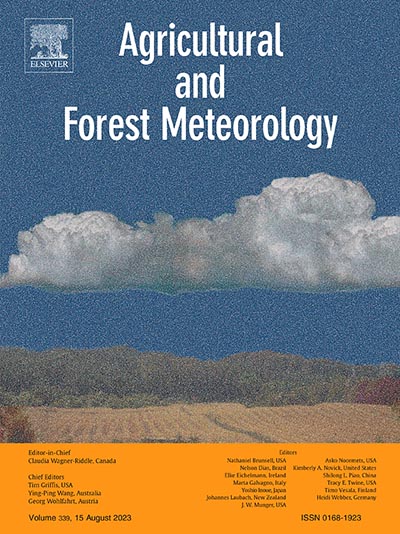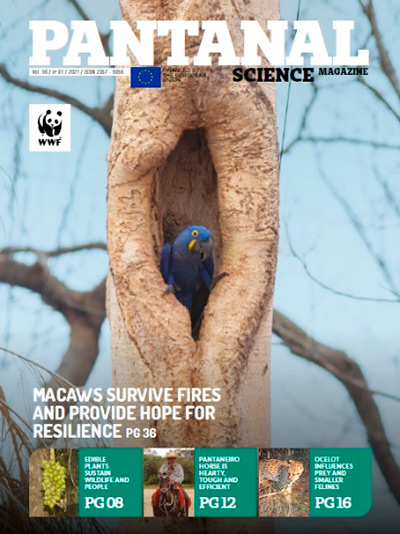Environmental

As a company in the education sector, our activities do not have a direct and significant impact on biodiversity. However, we believe that only through our commitment to preserving the environment and tackling climate change, acting as leaders, can we generate sustainable value for Cogna, our stakeholders, society and the planet. We recognize the importance of taking responsibility in this area and involving everyone in joint actions to achieve this objective. Bearing this in mind, we act proactively and are committed to preserving biodiversity.
Since 2008, we have maintained FSC (Forest Stewardship Council*) certification, which guarantees the paper’s chain of custody, and we demand that 100% of our suppliers in this category maintain certification. The FSC forestry certification system is internationally recognized and enables the tracking of paper, a significant input for the production of our books and handouts, guaranteeing the origin of forests managed in an environmentally sound way.
We understand that our greatest potential for positive impact on biodiversity is through educational activities, due to their ability to promote awareness, produce knowledge through applied scientific research, and disseminate information on discoveries, theories, and methods in scientific publications. In this sense, one of Cogna’s Commitments for a Better World is to reach 1.8 million people with environmental education content by 2025, a goal already surpassed, with 2.3 million people impacted by environmental education content.
Courses
We offer more than 170 undergraduate and graduate courses related to environmental issues.
Scientific Research
Environmental preservation is an urgent challenge: the erosion of ecosystems, the loss of biodiversity and climate change threaten human life and that of thousands of other species on the planet. In this context, scientific research and its promotion play a crucial role in the search for sustainable solutions and new ways of living in society. Our Programs act in line with regional development, whether in the generation of local knowledge, or in the quest to improve the quality of life in the surroundings.
Master’s Program in Environmental Sciences
- Maintained by UNIC (Cuiabá-MT), it focuses on the development of interdisciplinary activities regarding the evaluation of the structure of the physical, biological and anthropic environment of the various regional biomes, with emphasis on the dynamics associated with climate change and its consequences for human health and environmental sustainability.
- Participates, since 2021, in the Postgraduate Development Program (PDPG) in the Legal Amazon.
- Their research is published on the UNIC (Environmental Sciences) website.
Master’s and Doctoral Program in Environment and Regional Development
- Maintained by UNIDERP (Campo Grande – MS). The Master’s Program aims to train professionals to develop activities aimed at sustainable development; integration with the community, companies and environmental control bodies aimed at deepening studies and knowledge to improve the quality of life and expanding knowledge to support the formulation and implementation of public and private policies aimed at environmental conservation and regional development, with emphasis on the Cerrado and Pantanal biomes.
- Their research is published on the UNIDERP (Environment and Regional Development) website.
The Programs’ lines of research are:
- Agroecological agriculture x Bioeconomy: strategies for converting and adopting family farmers in Brazil;
- Use and Conservation of Biodiversity in the Pantanal and Cerrado;
- The Water Path in Campo Grande – MS;
- Monitoring Project for blue-and-yellow macaws (Ara Ararauna) in Campo Grande, MS;
- Evaluation of the leaf area index, in cerrado fragments, submitted to different prescribed burning regimes, in the national park Chapada dos Guimarães-MT;
- Seasonal and interannual dynamics of energy and CO2 exchanges in cerrado environmental gradient – Pantanal;
- Methane and carbon dioxide fluxes in seasonally flooded grassland areas of the Pantanal;
- The effect of prescribed burning on primary production, carbon and nutrient storage in a cerrado area in the Chapada dos Guimarães National Park;
- Use of remote sensing to analyze vegetation dynamics in an urban park.
Dissemination Of Scientific Production
The theses and dissertations resulting from the master’s and doctoral programs are available for public access, in Cogna’s repository of scientific production:
- Repository of the Graduate Program in Environmental Sciences;
- Repository of the Environment and Regional Development Program.
Several works originating from the programs make the pages of specialized scientific publications such as Elsevier and Science, expanding their dissemination. Among the examples, we highlight:

Higo J. Dalmagro, Michael J. Lathuillière, Paulo H.Z. de Arruda, Anisio A. Da Silva Júnior, Fernando da S. Sallo a, Eduardo G. Couto, Mark S. Johnson. Carbon exchange in rainfed and irrigated cropland in the Brazilian Cerrado. Agricultural and Forest Methodology ,Vol. 316, 2022

Guedes, N. M. R., Scherer-Neto, P., Fontoura, F.M., Ferreira, L.P., Ramalho, K., Lourenço, A.C.P., Carvalho, B.H.G., Ferramosca, M.R., Moreira, T.A. (2021). Macaws survive fires and provide hope for resilience – Stubborn survivors. Pantanal Science Magazine 6 (1):36-41.
*The Forest Stewardship Council is a not-for-profit organization that promotes responsible forest management around the world to ensure socially beneficial and economically viable forest management.